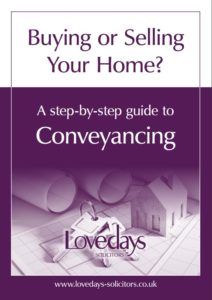- Home
- Personal Services
- Advice for Employees
- Conveyancing
- Dispute Resolution
- Boundary Disputes
- Dealing with Rent Arrears
- Japanese Knotweed Claims
- Landlord and Tenant Disputes
- Landlord Harassment & Illegal Eviction
- Negligence Claims Against Builders & Developers
- New Build Property Disputes
- Noisy Neighbour Disputes
- Personal Debt Collection
- Property Misrepresentations Claims
- Rights of Way Disputes
- Section 21 No Fault Evictions
- TOLOTA Claims
- Tree & Hedge Neighbour Disputes
- Divorce and Separation
- Family Law
- Lasting Power of Attorney
- Licensing
- Probate Law
- Trusts
- Wills
- Business Services
- Reviews
- Make An Enquiry
- Cost and Service Information
- About Us
- Contact Us
Settlement Agreement Solicitors
As an employer, there are different ways in which an employee's employment contract might be terminated and a settlement agreement is one of them. This forms a legally binding contract between yourself and the employee.
This outlines the terms and conditions of your relationship and can be used to resolve disputes or end employment. In a variety of different circumstances. It can be a beneficial method for both parties as it can provide a greater degree of certainty and will ensure that the employee gets a suitable reference.
It can sometimes be used to avoid stressful disciplinary procedures or other assessments and gives the employee a better chance of starting a new job elsewhere.
At Lovedays Solicitors our specialist employment solicitors can give you impartial expert advice on all manners of employment. They will be able to identify whether a settlement agreement is the right route to go down and can guide you through the process to ensure that it is fair and legal.
What is a Settlement Agreement?
Settlement agreements outline a variety of terms and conditions which are agreed by an employer and their employee when they agree to settle a potential employment tribunal claim or other court proceedings.
These used to be known as compromise agreements and are legally binding. It is important to remember that they can waive the rights of an individual to bring a claim covered by the agreement and will usually involve the employee receiving some sort of financial payment and a reference as part of the agreed terms. These settlement agreements are entirely voluntary and so all terms and conditions must be mutually agreed through a process of discussion and negotiation.
A settlement agreement can terminate an employment. When it is felt that the relationship between the employer and employee is no longer working. This means a final conclusion can be brought to a dispute or issue in the workplace.
There is no legal requirement to go through a disciplinary process before offering a settlement agreement, but it is important to think carefully about whether this is the best resolution for a difficult situation. Any settlement agreement must be put together using fairness and transparency at all points to ensure that neither party feels as though it has been forced upon them.
{quote}
Common Scenarios for Settlement Agreements
Settlement agreements can be used in a number of different scenarios in order to provide a clean break with no opportunity for an employee to take you to court or an employment tribunal for more money. This can often be used during a redundancy procedure in order to help avoid any long drawn-out processes if both parties are happy to proceed.
If an employer is having issues around discrimination in the workplace or an employee has raised a grievance, then you may want to use a settlement agreement in order to circumvent any potential claims for constructive dismissal or discrimination. Again, this should only be done if both parties are happy to reach such an agreement.
Settlement agreements may also be used if there is a performance review in advance of a termination. This can be used to avoid the lengthy process of a disciplinary investigation and can ensure that the employee is able to leave with a reference that will enable them to get another job elsewhere.
It is important to remember that before entering into any settlement agreement, you should seek professional legal advice to ensure that this is the right path and that all processes are legal, fair and correct.
Key Terms in Settlement Agreements
When putting together a settlement agreement, there are a number of terms that need to be included. You can include a reason for termination, although this is not required but you should make sure that there is a clear termination date which outlines the date at which the employment will come to an end. This needs to be a date after the terms and conditions of the settlement agreement have been agreed and finalised, and all the usual salary and benefits should be received up until this termination date.
There should also be details of the notice that is being given and any notice pay. If there is any accrued but unused holiday, this should also be included within the settlement agreement, and the employee may be eligible to receive payment in respect of this.
If there are any other payments due to the employee, this should also be outlined in the settlement agreement, and it is essential that you make sure all figures are agreed by both parties as well as the date on which the payments are to be made.
Confidentiality is another important part of any settlement agreement. The agreement should include a confidentiality clause that prevents anyone from disclosing the existence in terms of the settlement agreement and the circumstances surrounding the termination of the employment.
Many settlement agreements also include a non-derogatory comments clause which prevent the employee from making any negative comments about the company. Whilst there is no legal obligation for an employer to provide a reference, this is generally considered to be part of the negotiations for a settlement agreement.
{quote}
The Process of Negotiating Settlement Agreements
Initial Steps and Considerations
If a relationship with an employee has gone wrong and you are unable to find a way forward through mediation, then it may be best to opt for a settlement agreement. This will require a detailed negotiation process and so there is a lot that you will need to consider as part of this. Settlement agreements should only be used in special circumstances and should not therefore be routine as they can damage wider employee relations. You should only opt for a settlement agreement if you have exhausted all other options.
The process should begin with an initial offer made by the employer in a written or verbal proposal. This gives you an opportunity to explain why you want to settle and what you should offer and so it should include any potential costs to the business to resolve the problem without a settlement agreement and the cost of keeping the employee on or ending their contract. The offer of a settlement agreement will often also include a reference for the employee to reduce the impact of the termination of their employment.
In order to ensure that your settlement offer is attractive but fair, you should make sure that you seek professional legal advice before making an initial offer. They will be able to help you understand what is reasonable and within the law.
Drafting the Settlement Agreement
It will then be necessary to create a draught of the original settlement agreement. This will need to contain the identifying information of both the employer and the employee, as well as their job titles or roles. It needs to provide a detailed outline of the terms that both parties have agreed to, and this should include any financial settlements, the reason for the agreement and any post termination restrictions or covenants that have also been agreed.
If there is to be any notice or gardening leave, then this should also be included as should details of confidentiality or non-derogatory clauses. It is also important to include details of any payment arrangements, including amounts and timings of these.
It is important to seek professional legal advice when drafting a settlement agreement. This will ensure that it covers all of the necessary details and is agreeable to both parties. A specialist employment solicitor can ensure that the settlement agreement is fair and legal and is drafted to reflect everything that has been discussed and agreed upon. An employer may choose to cover the legal fees of the employee if they have also decided to seek independent legal advice for the settlement agreement.
Finalising the Agreement and Legal Advice
To finalise a settlement agreement, all relevant parties will need to sign the document. This is not just the employee and the employer, but also the employee’s legal advisor. It will also be necessary to verify that all legal formalities are completed and confirm that the employee has received the necessary independent legal advice, as this will show that the agreement is valid. The employee should be provided with a copy of the signed settlement agreement and any related documents, including reference letters.
It is then important that all the financial terms of the agreement are fully executed as agreed in the settlement agreement and that there should be no delays or discrepancies during the process. Any non-financial terms should also be arranged, such as the return of any company property. The logistics of the employees final working day will also need to be coordinated, including arranging exit interviews, overseeing any handover of duties and collecting company property.
It may be necessary to regularly monitor compliance with the terms of the settlement agreement to ensure that any clauses relating to confidentiality and non-disparagement are being upheld by both parties and any issues this may highlight are addressed quickly and through the correct legal process.
{quote}
How Lovedays Solicitors Can Help
The settlement agreement can be a complicated thing to negotiate, as it is important that the terms are fair for all parties involved. The expert team at Lovedays Solicitors can help you every step of the way, providing you with independent, qualified legal advice to ensure that you are compliant with the law and offer what is fair and right.
We are here to help you understand how settlement agreements work and what the best outcome for you and your business will be. We have a fast and efficient service and can represent businesses from all types of different industries across Derbyshire. We can not only advise you on how your settlement agreement should look, but we can also help to negotiate the correct terms.
Our solicitors are ideally placed to help you draft your settlement agreement and can ensure that all the relevant details have been included. We will also ensure that it is finalised correctly to make sure that it is legally binding for you and the employee. We understand that a settlement agreement can be a complex exercise, and so we provide bespoke, easy to understand legal advice to help reduce any stress, cost and delays in the whole process.
Conclusion
When employee relationships become difficult, it might be time to consider offering a settlement agreement. The Lovedays Solicitors team are on hand to help you assess whether this is the right option for both you and the member of staff concerned. We can help you to approach and negotiate the issue, as well as drafting all relevant paperwork to make sure that your business is fully protected at all times.
We are experienced in dealing with complex settlement agreements and so we are able to put together a range of terms that are appropriate for your individual situation, and allow you and your employee to move on without difficult circumstances, disciplinary hearings or other grievances hanging over you.
{quote}
Frequently Asked Questions
A protected conversation allows an employer, an employee, to have a confidential discussion without either party being able to use those discussions against the other in any subsequent unfair dismissal proceedings.
It is important to note that this does not cover the issue of discrimination, and as an employer, you will lose this protection if you behave improperly during the conversation by putting undue pressure on the employee to sign the settlement agreement.
In the most part, the first £30,000 of any compensatory or ex-gratia payments are exempt from tax. However, the salary and benefits that the employee receives until the contract of employment ends will still be subject to the normal tax and National Insurance implications, as well as any payments in lieu of holiday or notice.
Some claims cannot be waived with a settlement agreement. These include collective consultation failures. As well as some claims under the Agency Workers Regulation 2010 and claims that fall under the trade union blacklist regulations. Any claims for statutory paternity, maternity or adoption pay can also not be settled through a settlement agreement.
Get Support Today
Navigating a settlement agreement can be challenging, but with the right legal guidance, it can offer a smooth and fair resolution for both parties. At Lovedays Solicitors, our expert team provides tailored advice, ensuring your settlement agreements are legally compliant, transparent, and stress-free. We work with you every step of the way, from negotiating terms to drafting agreements, so you can move forward with confidence.
Don’t leave anything to chance—reach out to Lovedays Solicitors today for expert legal support that protects your business and ensures the best outcome. We're here to help!

Free Guide
If you don’t know your leasehold from your freehold, then get our Free Conveyancing Guide. It contains details about the steps you will need to take with any property transactions. The Guide giving you detailed guidance on what your lawyer will be doing for you and what to look out for.


Lovedays Solicitors, Brooke-Taylors Solicitors, Potter and Co Solicitors and Andrew Macbeth Cash and Co Solicitors are the trading names of Derbyshire Legal Services Limited which is a company registered in England and Wales under company number 08838592. Registered office Sherwood House, 1 Snitterton Road, Matlock, Derbyshire, DE4 3LZ.
Authorised and Regulated by the Solicitors Regulation Authority under SRA ID number 637916.
-
01629 56660
-
This email address is being protected from spambots. You need JavaScript enabled to view it. -
Sherwood House
1 Snitterton Road
Matlock
Derbyshire
DE4 3LZ
© Copyright 2019 Derbyshire Legal Services Limited | Website by WebWorks